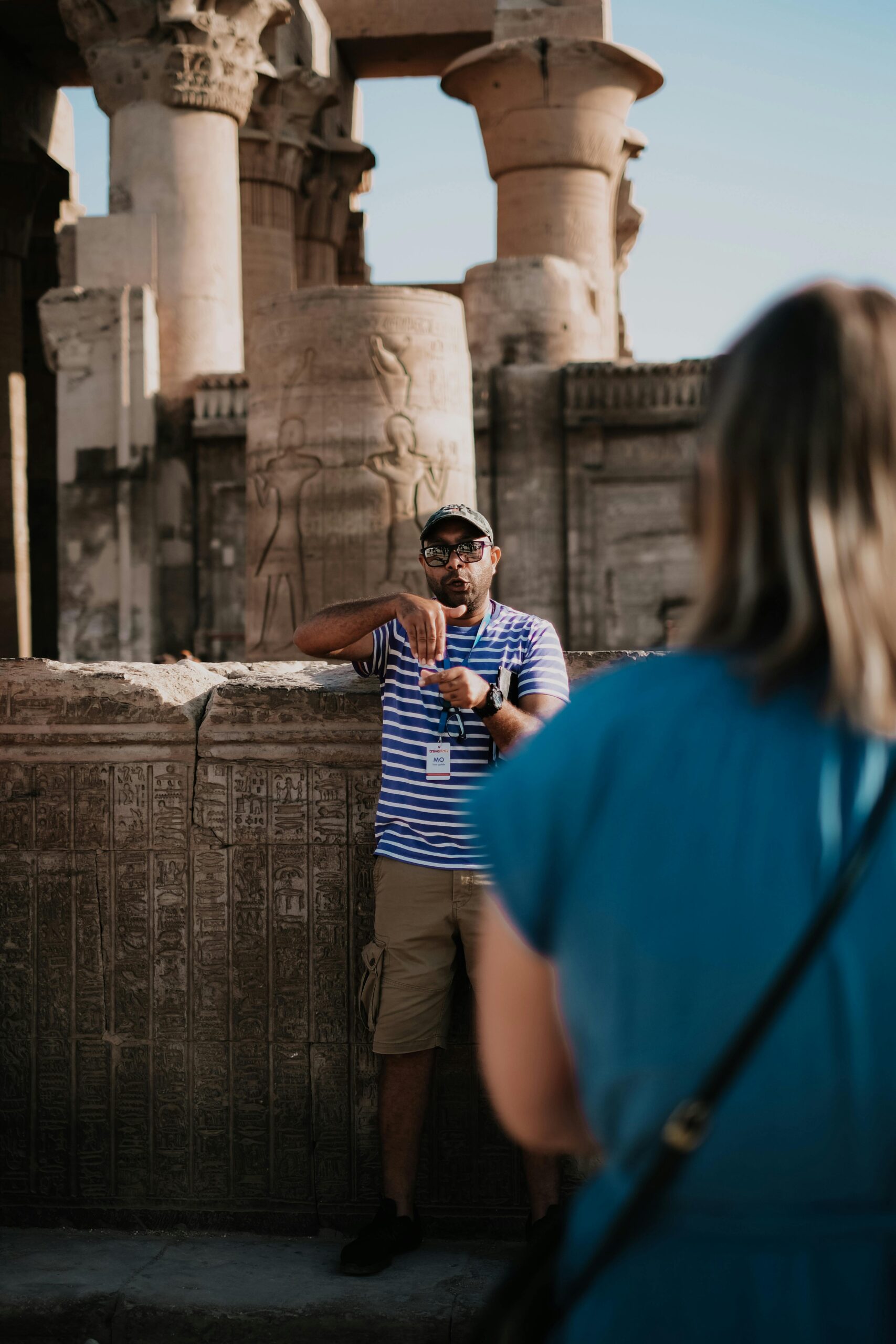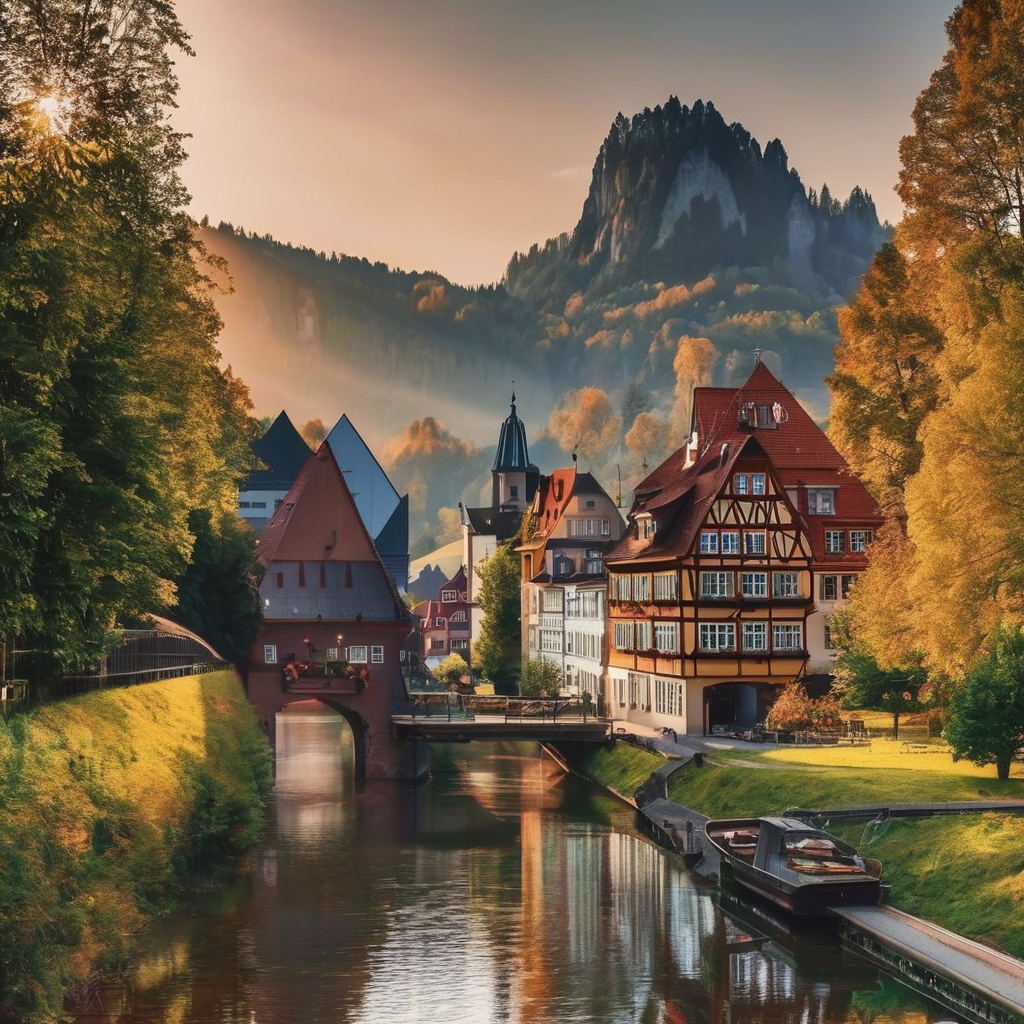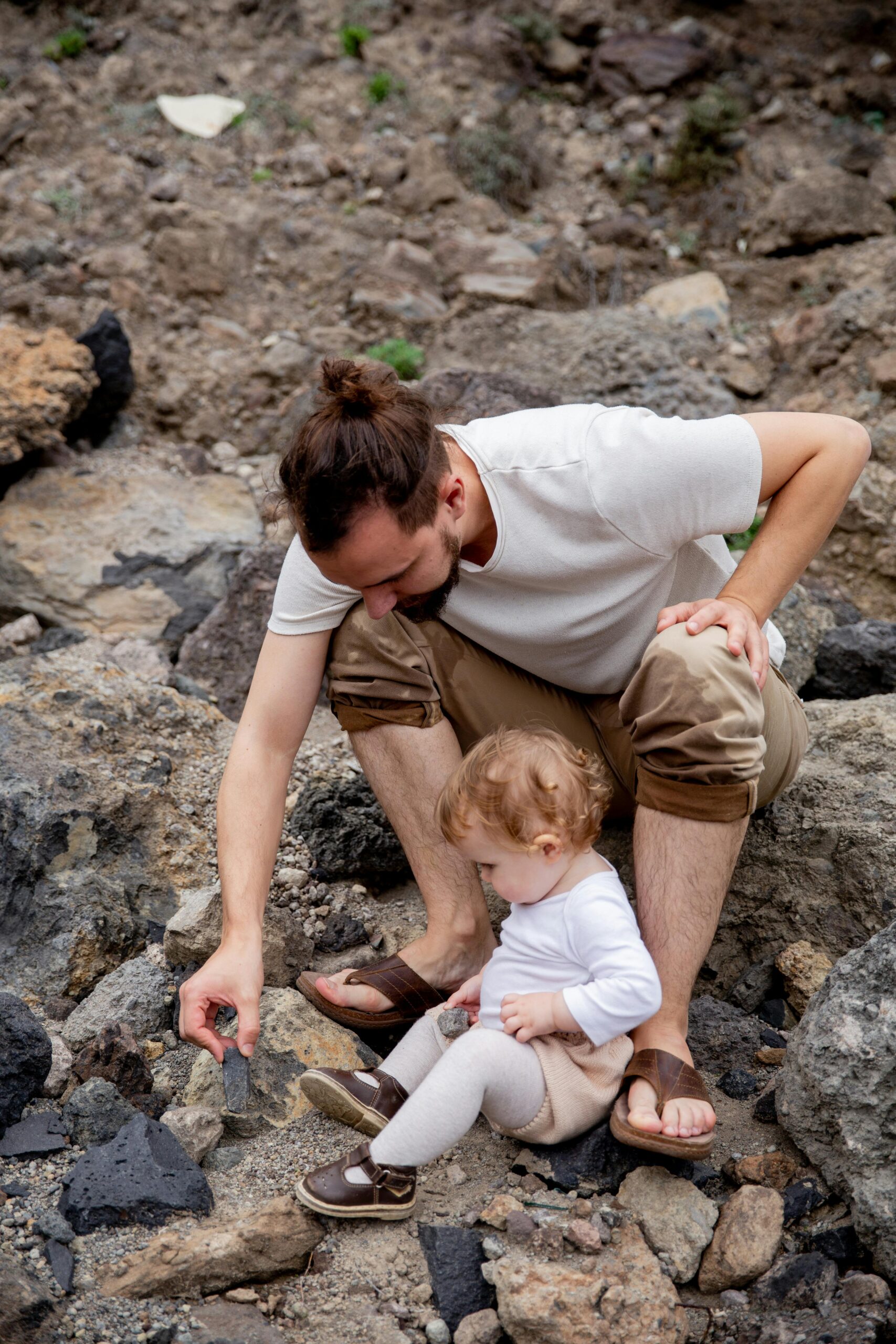In today’s fast-paced world, where screens dominate children’s attention, finding ways to blend fun with learning is paramount. Educational travel, often overlooked, is a remarkable solution that combines exploration, adventure, and learning. Whether it’s exploring historical landmarks, diving into science museums, immersing in different cultures, or venturing into the heart of nature, educational travel offers a myriad of enriching experiences for kids. This article aims to highlight some exciting educational travel options that promise both fun and learning for children.
Historical Sites and Landmarks
Historical sites are windows into the past, offering glimpses of bygone eras, cultures, and civilizations. These sites are invaluable not only for their historical significance but also for the stories they tell and the lessons they impart. From ancient ruins to well-preserved structures, historical sites around the world captivate visitors with their rich history and architectural marvels.
One example of a historical site is the Great Wall of China, an iconic symbol of Chinese civilization and one of the most impressive architectural feats in history. Stretching over 13,000 miles, the Great Wall stands as a testament to ancient Chinese engineering and military prowess. Visitors to this monumental site can explore watchtowers, fortresses, and breathtaking landscapes while gaining insight into China’s rich history and culture.
Another notable historical site is the Acropolis of Athens in Greece, a symbol of classical civilization and the birthplace of democracy. Perched atop a rocky outcrop overlooking Athens, the Acropolis is home to several ancient structures, including the iconic Parthenon. Visitors to this UNESCO World Heritage Site can marvel at the architectural achievements of the ancient Greeks and learn about their contributions to art, philosophy, and politics.
Learning Opportunities at Historical Landmarks
Historical landmarks offer invaluable learning opportunities for visitors of all ages. These sites serve as outdoor classrooms where history comes to life, allowing visitors to engage with the past in meaningful ways. From guided tours to interactive exhibits, there are numerous educational experiences to be found at historical landmarks around the world.
At historical landmarks, visitors can immerse themselves in the sights, sounds, and stories of the past. Through guided tours led by knowledgeable experts, visitors can gain deeper insights into the historical significance of these sites and the events that shaped them. Interactive exhibits and educational programs provide hands-on learning experiences, allowing visitors to explore historical artifacts, documents, and archaeological finds up close.
Moreover, historical landmarks offer opportunities for interdisciplinary learning, connecting history with other subjects such as art, architecture, and anthropology. Through activities such as sketching ancient ruins, studying architectural blueprints, or participating in archaeological digs, visitors can gain a deeper understanding of the cultural and technological achievements of past civilizations.
Museums and Science Centers
Museums and science centers offer a wealth of educational opportunities for visitors of all ages, making them ideal destinations for families with children. These institutions provide engaging and interactive experiences that spark curiosity, inspire learning, and foster a deeper understanding of the world around us.
Variety of museums suitable for kids
From natural history museums to children’s museums, there is a wide variety of institutions specifically designed to cater to the interests and needs of young visitors. Children’s museums, in particular, feature exhibits and activities tailored to kids, offering hands-on learning experiences in a fun and interactive environment.
For example, the Children’s Museum of Indianapolis is the world’s largest children’s museum, boasting five floors of interactive exhibits covering topics ranging from science and technology to history and culture. With exhibits like Dinosphere and Playscape, kids can embark on educational adventures while engaging their imaginations and creativity.
Similarly, natural history museums like the American Museum of Natural History in New York City offer immersive experiences that appeal to children’s curiosity about the world around them. Through exhibits showcasing dinosaurs, wildlife, and ancient civilizations, kids can explore the wonders of nature and history in an exciting and educational setting.
Interactive exhibits and hands-on activities
One of the key features of museums and science centers is their emphasis on interactive exhibits and hands-on activities. These experiences allow children to actively engage with the material, encouraging exploration, experimentation, and discovery.
Interactive exhibits often utilize multimedia technology, immersive environments, and tactile elements to create engaging learning experiences. For instance, interactive displays at science centers might allow children to conduct virtual experiments, simulate natural phenomena, or explore the principles of physics and engineering through interactive installations.
Hands-on activities further enhance the learning experience by encouraging active participation and problem-solving. From building structures with blocks to dissecting specimens, hands-on activities enable children to apply their knowledge in practical ways, fostering critical thinking skills and a deeper understanding of scientific concepts.

Cultural Immersion Trips
Cultural immersion trips offer travelers the opportunity to immerse themselves in the customs, traditions, and way of life of different cultures around the world. These trips go beyond typical tourist experiences, allowing participants to engage with local communities, explore historical landmarks, and gain a deeper understanding of the world’s cultural diversity.
Experiencing different cultures
One of the most enriching aspects of cultural immersion trips is the opportunity to experience firsthand the customs, traditions, and daily life of different cultures. Whether participating in traditional ceremonies, sampling local cuisine, or learning traditional crafts, travelers have the chance to connect with locals and gain insights into their way of life.
For example, travelers to Japan can partake in a tea ceremony, an ancient ritual that embodies the principles of harmony, respect, and tranquility. By learning about the art of tea preparation and participating in the ceremony, visitors can gain a deeper appreciation for Japanese culture and its emphasis on mindfulness and hospitality.
Similarly, cultural immersion trips to countries like India offer opportunities to explore vibrant markets, visit sacred temples, and witness traditional festivals. From the colorful streets of Jaipur to the serene backwaters of Kerala, travelers can immerse themselves in India’s rich cultural tapestry, encountering diverse customs, languages, and traditions along the way.
Language learning opportunities
Language learning is another valuable aspect of cultural immersion trips, allowing travelers to develop language skills while interacting with native speakers in authentic settings. Whether through formal language classes or informal conversations with locals, travelers can enhance their language proficiency and deepen their cultural understanding.
For instance, travelers to Spain can enroll in language courses offered in cities like Barcelona or Madrid, where they can immerse themselves in the Spanish language while exploring the country’s rich history and culture. By practicing Spanish in everyday situations, such as ordering food at a local restaurant or navigating public transportation, travelers can improve their language skills in a practical and immersive environment.
Similarly, language immersion trips to countries like France or Italy offer opportunities to learn French or Italian while exploring iconic landmarks, tasting regional cuisine, and engaging with locals. Through language immersion, travelers not only gain linguistic proficiency but also develop a deeper appreciation for the cultural nuances and expressions of the language they are learning.
Nature Exploration
Nature exploration offers individuals the chance to connect with the natural world, immerse themselves in breathtaking landscapes, and gain a deeper appreciation for the environment. From national parks to wildlife reserves, there are countless opportunities for outdoor adventure and exploration.
National parks and wildlife reserves
National parks and wildlife reserves are havens for biodiversity, preserving natural habitats and providing refuge for a wide range of plant and animal species. These protected areas offer visitors the opportunity to explore pristine wilderness areas, observe wildlife in their natural habitats, and engage in a variety of outdoor activities.
For example, Yellowstone National Park in the United States is renowned for its stunning geothermal features, including geysers, hot springs, and colorful pools. Visitors to Yellowstone can explore hiking trails, go wildlife spotting, and marvel at iconic landmarks such as Old Faithful, all while immersing themselves in the park’s natural beauty and rich ecological diversity.
Similarly, wildlife reserves like the Maasai Mara in Kenya offer unparalleled opportunities for safari adventures and wildlife viewing. Home to the famous Great Migration of wildebeest and zebras, the Maasai Mara attracts nature enthusiasts from around the world who come to witness this spectacular natural phenomenon and experience the thrill of encountering Africa’s iconic wildlife up close.
Outdoor activities and environmental education
In addition to providing opportunities for recreation and relaxation, nature exploration also offers valuable opportunities for outdoor activities and environmental education. From guided nature walks to birdwatching excursions, there are endless ways to engage with the natural world and learn about environmental conservation.
For instance, many national parks offer ranger-led programs and interpretive tours that provide insights into the park’s ecology, geology, and cultural history. Through hands-on activities and educational exhibits, visitors can gain a deeper understanding of the interconnectedness of ecosystems and the importance of protecting natural resources.
Furthermore, nature exploration provides opportunities for outdoor recreation and adventure, including hiking, camping, kayaking, and rock climbing. These activities not only promote physical health and wellbeing but also foster a sense of stewardship for the environment as individuals develop a greater appreciation for the natural world and the need to preserve it for future generations.
Educational Tours and Programs
Educational tours and programs provide valuable opportunities for students and learners of all ages to enhance their knowledge, skills, and understanding of various subjects. These organized experiences offer immersive learning experiences, hands-on activities, and access to expert guidance, making them ideal for individuals seeking to broaden their horizons and deepen their understanding of the world.
Organized educational tours
Organized educational tours offer participants the chance to explore diverse destinations, engage with local cultures, and gain firsthand insights into a wide range of subjects. These tours are typically led by knowledgeable guides who provide informative commentary and facilitate meaningful learning experiences.
For example, history enthusiasts can embark on guided tours of ancient ruins, medieval castles, and iconic landmarks, delving into the rich history and cultural heritage of different regions. Likewise, art lovers can participate in curated tours of museums, galleries, and cultural institutions, learning about artistic movements, styles, and techniques from expert curators and historians.
Furthermore, educational tours can focus on specific themes or subjects, such as science, literature, or environmental conservation. For instance, science enthusiasts can join field trips to research facilities, observatories, and natural reserves, engaging in hands-on experiments and interactive demonstrations led by scientists and educators.
Specialized programs for kids
Specialized programs for kids offer tailored learning experiences designed to engage young learners and ignite their curiosity about the world. These programs often feature age-appropriate activities, interactive workshops, and educational games that make learning fun and engaging for children.
For example, science centers and museums offer specialized programs for kids that allow them to explore scientific concepts through interactive exhibits, hands-on experiments, and STEM-focused activities. These programs not only foster a love of learning but also help children develop critical thinking skills and a deeper appreciation for the natural world.
Similarly, cultural institutions and heritage sites offer educational programs that introduce children to diverse cultures, traditions, and historical events through storytelling, arts and crafts, and role-playing activities. By participating in these programs, kids can broaden their perspectives, enhance their cultural literacy, and develop empathy and understanding for people from different backgrounds.
FAQs
Q. What are some educational travel trips that are fun and informative for kids?
A. Educational travel can be both fun and informative for kids. Here are some ideas:
Q. What about visiting historical sites?
A. Exploring historical sites can be a great way for kids to learn about the past. Places like museums, ancient ruins, and historical landmarks offer interactive experiences and educational programs designed specifically for children.
Q. Are there any nature-based trips suitable for kids?
A. Absolutely! Nature-based trips can include visits to national parks, botanical gardens, or wildlife sanctuaries. Kids can learn about different ecosystems, animal habitats, and environmental conservation efforts while enjoying outdoor activities like hiking and birdwatching.
Q. How about cultural immersion experiences?
A. Cultural immersion experiences allow kids to learn about different customs, traditions, and lifestyles firsthand. This could involve participating in cultural workshops, visiting local markets, or even staying with host families in different countries.
Q. Can educational travel include science-themed trips?
A. Yes, science-themed trips can be incredibly engaging for kids who are curious about the world around them. Visiting science museums, planetariums, or attending science camps and workshops can spark their interest in various scientific fields.
Q. Are there any educational travel opportunities focused on art and creativity?
A. Absolutely! Art-focused trips can include visits to art museums, galleries, and cultural centers where kids can explore different artistic styles and techniques. They can also participate in hands-on art workshops led by professional artists.
Q. How can parents ensure that educational trips are both fun and informative for their kids?
A. Parents can enhance the educational value of trips by involving their kids in the planning process, choosing destinations that align with their interests, and encouraging active participation during the journey. Additionally, incorporating interactive activities, games, and storytelling can make the learning experience more enjoyable for children.
Conclusion
Educational travel isn’t just about ticking destinations off a list; it’s about opening young minds to the wonders of the world. From historical sites and museums to cultural immersion trips and nature exploration, the opportunities for learning are endless. By incorporating educational travel into their lives, parents can foster curiosity, spark creativity, and instill a lifelong love for learning in their children. So, let’s pack our bags, embark on exciting adventures, and watch our kids grow into informed, well-rounded individuals who are eager to explore the world around them.




